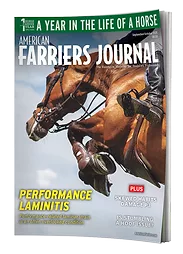Advertise Follow Us
Items Tagged with 'farrier regulation'
ARTICLES
Groups team up to change veterinary supervision law
Read More
Farrier Licensing: Just The Facts
What does registration, certification and licensing mean for the horseshoeing industry?
Read More









